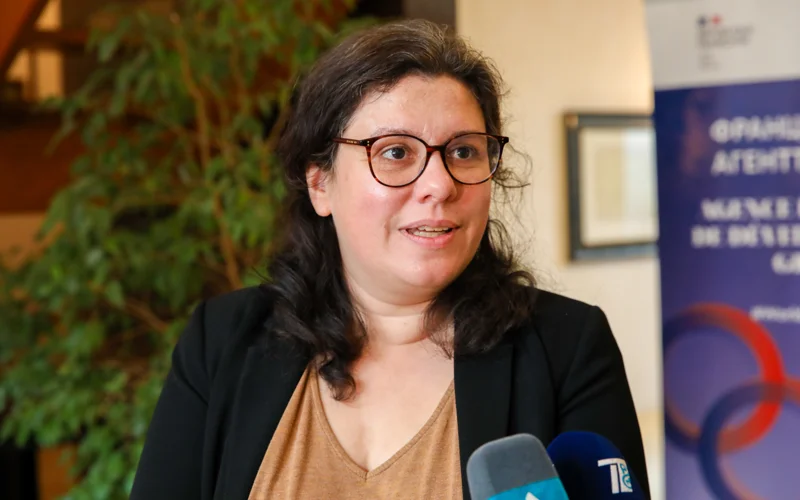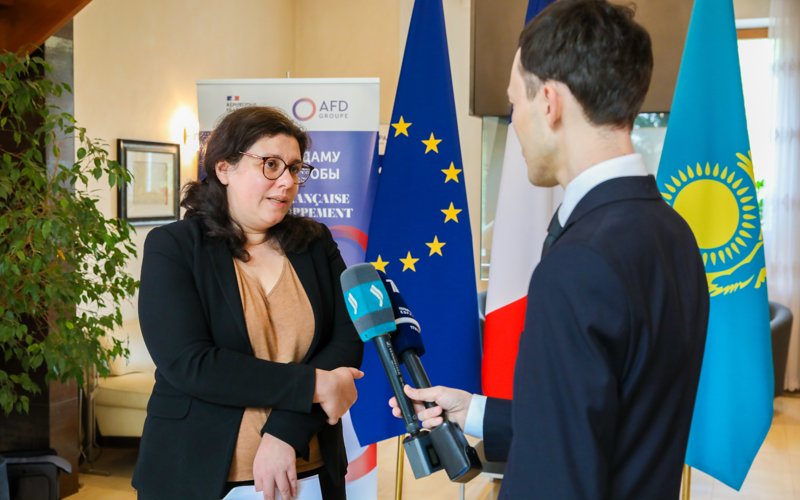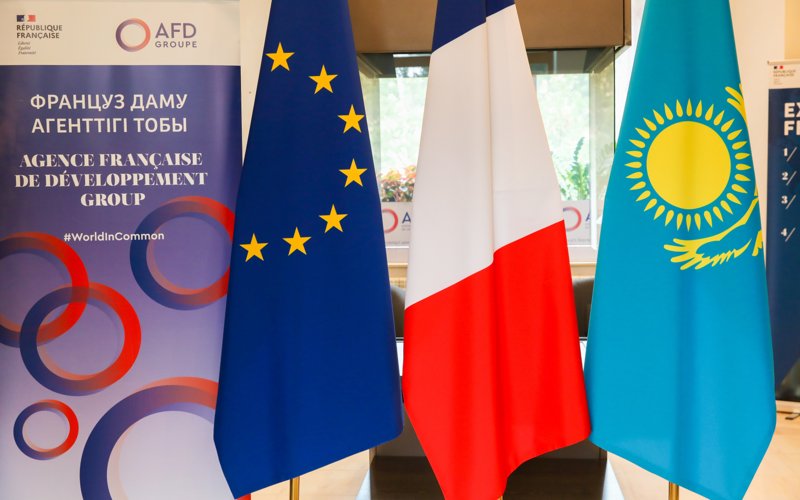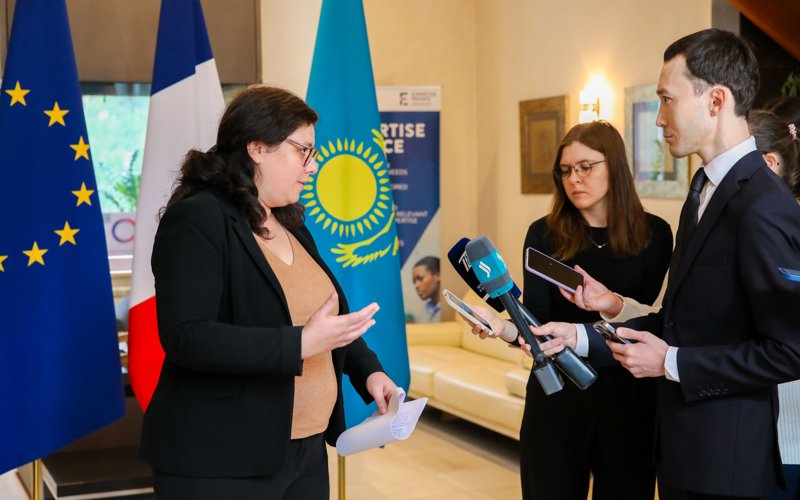AFD unveils multi-sector partnership framework with Kazakhstan
Kazakhstan is emerging as a key partner for the French Development Agency (AFD) as it broadens its engagement across Central Asia. Speaking at a press conference in Astana, Amélie Aubert, AFD’s Regional Director for Central and Eastern Asia, outlined the agency’s strategic areas of cooperation with Kazakhstan, highlighting the priorities of the bilateral partnership, Kazinform News Agency reports.

According to Aubert, healthcare is at the forefront of AFD’s cooperation in Kazakhstan, both in terms of current initiatives and future potential. She revealed that AFD has already provided €945,000 in grant funding to support technical assistance for the Ministry of Healthcare and other national institutions through Expertise France. However, the agency now plans to scale up the investments. “We are considering mobilizing significant financing in the form of loans to support the Kazakh authorities,” Aubert said, adding that discussions with the government are ongoing for investments ranging between €100 and €200 million.

A recent example is seen through Proparco, AFD’s private sector financing subsidiary, which is contributing €90 million to the initiative, led by the company Rönesans, involving the construction of a 630-bed multidisciplinary hospital in Kokshetau. “The group has been told about Proparco's affiliates; they are contributing €90 million, but we are, of course, one of the many partners in this ambitious project, since there is a funding round that mobilizes other entities besides Proparco,” Aubert explained.
The second major area of strategic cooperation discussed was water resource management, regarding which Aubert highlighted a €1.35 million grant allocated to the development of a comprehensive water management planning tool for the Lake Balkhash watershed. This tool is being developed by French and Kazakh experts, with support from Expertise France and collaboration with the United Nations Development Programme (UNDP).

“We are very pleased to be able to support the Cadastral authorities with this funding, and I myself was able to participate yesterday in a high-level committee meeting under the patronage of the Minister of Water Resources and the representative here of the United Nations, the UNDP,” Aubert shared. She added, “The Kazakh authorities today have a very clear ambition and strategy in defining their water resources policy, and we will be very happy to continue our support on these issues in the years to come. We are indeed pleased to support the Kazakh government on this issue.”
Beyond the national level, AFD is also contributing to regional water initiatives. Aubert noted, “Regionally, we have also mobilized a €2 million grant to IFAS, intended to analyze the water needs of the pilot sub-watersheds of the Aral Sea in Kazakhstan and Uzbekistan,” also explaining that “this is of interest when discussing the financial resources that AFD mobilizes to support projects to combat climate change and the significant expertise it provides.”

Turning to infrastructure, Aubert addressed a question from Kazinform about AFD’s role in the development of the Trans-Caspian Transport Corridor. While she made it clear that AFD is not currently planning to fund large-scale rail infrastructure in Kazakhstan, the agency is involved in laying the institutional groundwork necessary for future investments.
“At the moment, my understanding is that several types of activities have been identified to be financed by the EU, both in terms of studies and work on the environment so that we ensure that the legal framework and everything is put in place adequately,” she said. Aubert also explained that AFD, together with its German counterpart GIZ, is working closely with the EU Delegation in Kazakhstan to assess and define potential directions: “We have a team of experts, both from Expertise France and from GIZ, who are coming here at the end of the month in order to precisely be able to work on the topic with the AFD with the objective that we have more visibility and more clarity on what we could do by the end of the year 2025.”
While transport infrastructure remains outside AFD’s current financing scope in Kazakhstan, the agency envisions supporting the corridor through technical assistance and feasibility studies. “AFD itself is not intending to, in the short term, intervene with loans and financing dedicated to railways in Kazakhstan,” Aubert clarified. “What we will do with TCTC probably is, through Expertise France, be able to mobilize technical assistance and expertise to work on the institutional framework of this program, perhaps on the implementation and some feasibility studies for specific investments.”
Earlier, it was reported that The Head of State signed the Law of the Republic of Kazakhstan to ratify the Agreement between the Kazakh and French governments regarding the operation of the French Development Agency (AFD) Group in the Republic of Kazakhstan.
